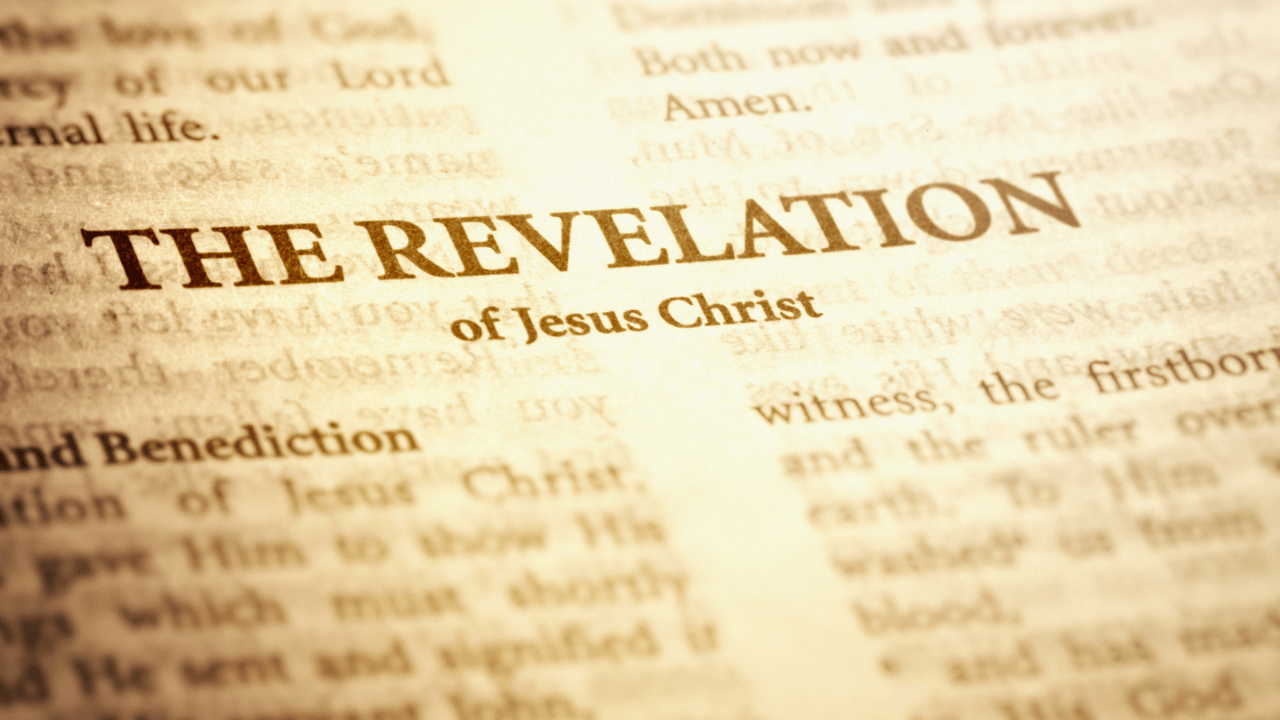No products in the cart.
The Biblical Prophecies of the Second Coming of Jesus Christ in the Book of Revelation
This post contains paid and/or affiliate links. I make a small commission at no extra cost to you. Please see our Privacy Policy.
The second coming of Jesus Christ is a key doctrine in Christianity. It marks the end of evil and the start of Christ’s kingdom. The Book of Revelation and other New Testament writings give us detailed prophecies about this event.
In this study, we will explore:
- Key Bible Passages on the Second Coming in Revelation
- The Theological Significance of Christ’s Return
- Symbols and Imagery in Revelation Explained
- How Believers Should Prepare for Jesus’ Return
- The Hope and Urgency of the Second Coming
- Common Misconceptions About the End Times
- What Happens After Jesus Returns?
By looking into these areas, we’ll understand the second coming better. We’ll see how it affects our faith.
Key Bible Passages on the Second Coming in Revelation
Revelation’s vivid prophecies are key to understanding Christ’s return. From the triumphant rider on the white horse (Rev 19) to the earth-shattering declaration “I am coming soon” (Rev 22:12), these passages reveal God’s plan.
They show how Jesus’ teachings in the Gospels connect with these prophecies, giving us a complete picture of His glorious return.
Revelation 1:7 – The Visible Return of Christ
“Behold, He is coming with the clouds, and every eye will see Him, even those who pierced Him, and all tribes of the earth will wail on account of Him.”
- Universal Visibility: Jesus’ second coming will be seen by everyone. This includes both believers and those who don’t believe.
- Cloud Imagery: This shows His divine glory. It’s like the glory seen in Exodus 13:21-22 and Acts 1:9-11.
- Response of the Nations: Many will mourn. Some will repent, while others will despair at the judgment.
Revelation 19:11-16 – The Warrior Messiah
This passage shows Jesus as a victorious king:
- White Horse: This symbolizes victory and righteousness.
- “Faithful and True”: This contrasts with the deceitful Antichrist (Revelation 13:1-10).
- Sword from His Mouth: This represents the power of His Word (Hebrews 4:12).
- “King of Kings and Lord of Lords”: This shows His supreme authority over all rulers.
Revelation 22:12-13 – The Imminent Return and Final Judgment
“Behold, I am coming soon, bringing My recompense with Me, to repay each one for what he has done.”
- “Soon” (Greek: tachu): This doesn’t always mean right away. It means “sudden” or “unexpected.”
- Divine Justice: Believers will be rewarded (1 Corinthians 3:12-15). The wicked will face punishment (2 Thessalonians 1:6-9).

Other Key Passages
- Matthew 24:30-31: Jesus will return with angels to gather His elect.
- 1 Thessalonians 4:16-17: Believers will be raptured to meet Christ in the air.
- 2 Peter 3:10-13: The current heavens and earth will dissolve. This makes way for the new creation.
The Theological Significance of Christ’s Return
Why is the second coming so important to Christian faith? It fulfills God’s promises, completes our salvation (Heb 9:28), and brings divine justice.
This section explores how Christ’s return changes our view of history, human purpose, and the triumph of God’s kingdom. It shows how we should live today, looking forward to eternity.
Fulfillment of Biblical Prophecy
- Old Testament Promises:
- Daniel 7:13-14 – The Son of Man receiving an everlasting kingdom.
- Zechariah 14:4 – The Lord standing on the Mount of Olives.
- New Testament Confirmations:
- Jesus’ own prophecies (Matthew 24, Mark 13, Luke 21).
- Apostolic teachings (1 Thessalonians 5:1-11, 2 Peter 3).
The Defeat of Evil
- Satan’s final doom (Revelation 20:10).
- The end of death, suffering, and sin (Revelation 21:4).
The Resurrection and Glorification of Believers
- 1 Corinthians 15:51-54: The dead in Christ rise first, then living believers are transformed.
- Philippians 3:20-21: Our lowly bodies will be made like Christ’s glorious body.
The Restoration of Creation
- Romans 8:19-21: Creation itself will be liberated from decay.
- Revelation 21:1: A new heaven and new earth replace the old order.
Symbols and Imagery in Revelation Explained
Revelation’s apocalyptic language, like seven seals and mysterious beasts, has puzzled many. Yet, these symbols are rooted in Old Testament prophecy and first-century context.
We’ll explore their meanings, showing why John’s vision is as powerful today as it was then.
The Seven Seals, Trumpets, and Bowls
- Seals (Revelation 6): Represent God’s judgments unfolding progressively.
- Trumpets (Revelation 8-9): Announce escalating divine interventions.
- Bowls (Revelation 16): Final, unrestrained wrath before Christ’s return.
The Two Beasts (Revelation 13)
- First Beast (Antichrist): A political-military leader demanding worship.
- Second Beast (False Prophet): A religious deceiver promoting the Antichrist.
The Millennium (Revelation 20:1-6)
- Premillennial View: Christ returns before a literal 1,000-year reign.
- Amillennial View: The millennium symbolizes Christ’s current spiritual reign.
- Postmillennial View: The Church gradually brings God’s kingdom before Christ’s return.
The New Jerusalem (Revelation 21-22)
- Dimensions: A perfect cube (like the Holy of Holies) symbolizing God’s presence.
- No Temple (21:22): God and the Lamb are its temple.
- River of Life (22:1-2): Eternal sustenance and healing for the nations.

How Believers Should Prepare for Jesus’ Return
Scripture gives clear instructions for living in light of Christ’s imminent return. “Be ready” (Matt 24:44) is more than advice; it’s a call to action. This section focuses on practical steps, like spiritual vigilance and moral purity.
We’ll see how the early Church’s “Maranatha!” cry (1 Cor 16:22) guides our priorities and choices as we await our King.
Spiritual Readiness
- Watchfulness (Mark 13:32-37): Stay alert, as no one knows the exact time.
- Prayer (Luke 21:36): Pray to be worthy to avoid the coming troubles.
Moral Purity
- 1 John 3:2-3: Purifying ourselves as He is pure.
- 2 Peter 3:11-14: Living holy and godly lives.
Evangelism and Discipleship
- Matthew 28:19-20: The Great Commission remains urgent.
- 2 Timothy 4:1-2: Preaching the Word in season and out of season.
Steadfastness in Trials
- James 5:7-8: Patience like a farmer waiting for harvest.
- 1 Peter 1:6-7: Trials refine faith for Christ’s appearing.
The Hope and Urgency of the Second Coming
Christian eschatology is a paradox of hope and urgency.
We’ll see how Christ’s return comforts sufferers (1 Thess 4:18), motivates evangelism (2 Pet 3:9), and fuels endurance in persecution. This balance shapes how we face life’s challenges and opportunities.
Hope for Believers
- Titus 2:13: “Looking for the blessed hope and appearing of our great God and Savior.”
- 1 Thessalonians 4:17-18: Comfort for grieving Christians.
Warning for Unbelievers
- 2 Thessalonians 1:7-9: Eternal destruction for those who reject Christ.
- Revelation 22:11-12: A final call to repentance before judgment.
The Church’s Cry: “Maranatha!” (1 Corinthians 16:22)
- An Aramaic expression meaning “Our Lord, come!”
- Reflects the early Church’s eager anticipation.

Common Misconceptions About the End Times
Many misconceptions, like date-setting and apocalyptic conspiracy theories, distort the truth about Christ’s return.
We’ll address these errors by looking at what Scripture teaches about the “last days,” the Antichrist, the Millennium, and why Jesus said “no one knows the day or hour” (Matt 24:36).
Misinterpretation of “Soon”
- Some argue Christ’s delay disproves His return (2 Peter 3:3-4).
- God’s timeline differs from ours (2 Peter 3:8).
Date-Setting Errors
- Jesus said no one knows the day or hour (Matthew 24:36).
- Failed predictions (e.g., 2011 Harold Camping scandal) harm credibility.
Overemphasis on Speculation
- Some focus excessively on signs, not readiness.
- Jesus’ command: “Be ready” (Matthew 24:44), not “Figure it out.”
What Happens After Jesus Returns?
The Second Coming is just the beginning of eternity. We’ll explore the final judgment (Rev 20), the new creation (Rev 21-22), and the believer’s eternal vocation.
We’ll see what it means to reign with Christ (2 Tim 2:12) in a perfected universe.
The Final Judgment (Revelation 20:11-15)
- The Great White Throne judgment for unbelievers.
- Believers’ works judged for rewards (1 Corinthians 3:12-15).
Eternity with God (Revelation 21-22)
- No more tears, pain, or death.
- Everlasting worship, fellowship, and service.
Conclusion: Living with Expectancy
The early Christians lived differently because of their belief in Christ’s return. We’ll discuss how to live with expectancy, honoring Christ’s imminent coming while engaging with our world today. This isn’t escapism; it’s empowered living between two advents.
The second coming of Jesus is more than just a future event. It’s a reality that changes how we live now. As we wait for His return, let’s:
Abide in Christ (John 15:4-5)
Serve faithfully (1 Corinthians 15:58)
Proclaim the Gospel boldly (2 Timothy 4:2)
Long for His appearing (2 Timothy 4:8)
“He who testifies to these things says, ‘Surely I am coming soon.’ Amen. Come, Lord Jesus!” (Revelation 22:20).













